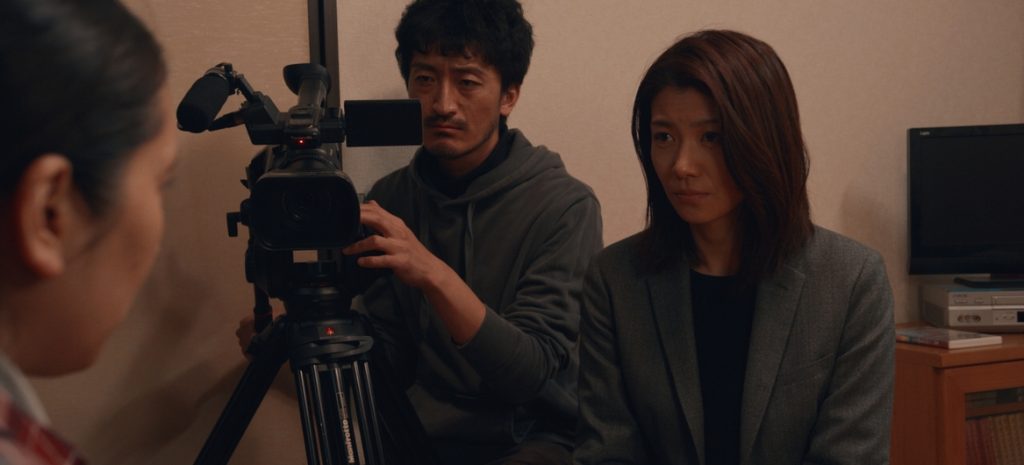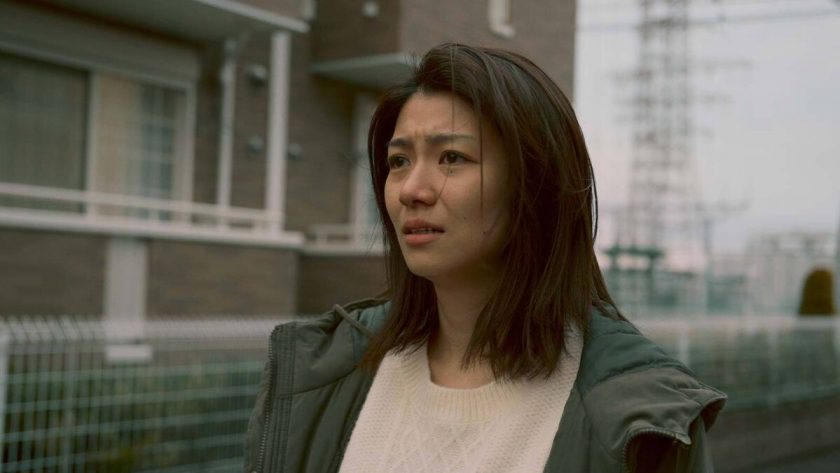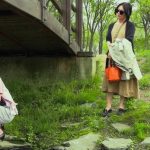LEAFF 2021 celebrates its sixth year with a programme of thirty films from celebrated and debut filmmakers. Championing East Asian cinema, LEAFF aims to bring a wide range of cinema to London and offer the opportunity to experience a new culture of cinema.
Mara Dinu reviews the drama of a journalist who tries to help a sexually exploited student only to realise there is much more to the story.
A persistent grey atmosphere. The duality of the lens. A generalized silence. There are many themes and layered social issues thoroughly analysed by Yujiro Harumoto during her 153 minute drama A Balance. She introduces controversial concepts, such as the flaws of filmmaking in Japan, sexual abuse, the intricate spectrum of implications and the effects of bullying, from bullied to bully until collateral victims are born. We witness a portrait of Japan’s culture of shame, which seems to affect entire families. Yuko (Kumi Takiuchi) is a documentary director working on a film about the harsh truth beneath a school sexual harassment case, which ended in a double suicide and the slow disintegration of familial lives. She tutors at her father’s cram school in the afternoons, equally passionate, but in a more relaxed atmosphere. She seems to have reached a balance between personal life and career — but her experiences as a journalist with the sexual assault case seem to start leaking into her private life, the two becoming indistinguishable.
In the making of her film, she tries to remain as objective as possible, despite her lack of power over her own artistic vision. We get great insight into the world of documentary filmmaking — producers cutting her interviews until the meaning of the victims’ words becomes twisted, underlining the mechanisms by which media tells half-truths and reinvented stories. While the father of one of the victims mentions that both the school and media brought about his daughter’s suicide, the final edit made it sound as though the school alone was the problem. The producers only care about telling people what they want to hear while making money. “Who is the real victimizer?” The media is treated like the victim’s victim, the bullying chain that keeps disintegrating people.

At the cram school, the relationship between Yuko and a student named Mei (Yumi Kawai), begins to establish itself, especially when Mei’s cheating brings back nostalgic memories of Yuko cheating in her youth too. When Mei starts to feel sick and skips school, Yuko finds out that she is pregnant with her father’s child. She visits the girl’s home, which reveals is a dishevelled mirror of Mei’s life. A disastrous mix of kitchen tools, bowls, and clothes are thrown all over the place. The story Yuko was trying to deconstruct starts turning into her own life and now she finds herself in two hypostases, one of “behind” and another “in front” of the camera.
As she starts understanding the importance of keeping certain secrets hidden, she ends up on the people’s side both in her personal drama, as well as in her career, trying to protect and hide the truth. I don’t think this is a matter of her disturbed morality, but more of a fight between remaining moral on the objective side of the truth and subjectivising morality to keep promises. The latter case shifts into a more subtle nuance of doing the right thing even if it means remaining moral on the side of immoral people. Doing right by the wrong side is not really the same as doing the wrong itself. Yuko is more than a director, her film becomes a personal matter. However, she comes to a point where she must choose between saving her documentary and saving the life of Mei, with the risk of losing all her work and reputation as a film director: “But nobody will die / Somebody already has. I’m trying to resurrect them.” Her decision is no longer based on objectivity because both sides of her existence are hiding secrets from herself, leaving her incapable of making the correct decision. Her fight for justice turns into a fight for people’s reputations, which very often is associated with hiding the truth. She never manages to show the reality in her film, as she ardently wished to.
The combination of close-ups, medium and long shots are artfully linked to the documentary style shots, the camera often shaky. This has the power to immerse the audience even more into the story, as we perceive the characters’ emotions in a more impactful way. The image usually looks dark, the colours faded, and the complete lack of music is not even that shocking — the characters themselves showing so much emotion that there is no real need for a soundtrack. The initial shots from Yuko’s home look warm and welcoming, whereas later ones turn colder. The pace is slow, as the characters open up gradually, but sometimes the contemplating pauses are a bit too long.
Overall, the film is an excellent combination of dark realities and it describes a rotten world where morality and humanity are lost. Yuko is an extremely complex character, and we receive a deep analysis of her psychology. She was trying to be the saviour, but the victims managed to save themselves, in different ways to the ones Yuko was hoping for.
A Balance is out right now:




